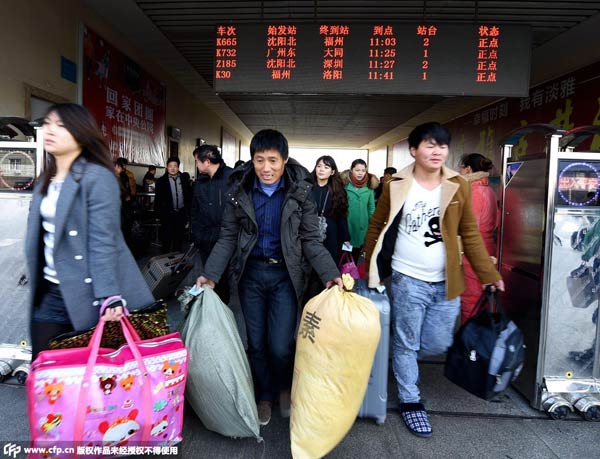 |
|
Migrant workers walk out of the Haozhou Railway Station, East China's Anhui province, Jan 18, 2014.[Photo/CFP] |
Bidding?farewell to the countryside for a better future in big cities was once the dream of millions of rural residents. However, a survey by a statistics bureau in Sichuan province, Southwest China, showed that about 54 percent of migrant workers in nine cities in the region are reluctant to change their rural household registration or hukou into an urban one. A regional website cnhubei.com comments:
The reluctance of these migrant workers to settle in cities reflects the reality they face. Although many have now lived in a city for more than a decade, they still jump from one low paid job to another. Even though some may have savings and may even have bought their own apartments they still don't feel a sense of belonging in the place in which they work and live.
Treated differently with regard to social insurance, education, healthcare and housing policies, they say that "owning a place to sleep in a city" doesn't mean much.
Thus despite the wide development gaps between rural and urban areas, the migrant workers still intend to go back to their countryside homes at some stage.
All in all, it is the unequal treatment that deprives the migrant workers of feeling they are a part of city life. Whether they choose to stay or leave, their choice should be respected; it is their right to decide where to live out the rest of their lives.
(China Daily 12/29/2015 page8)

Charlotte and Emilie Meaud, twin sisters, were killed at the terrace of the Carillon, during the attacks on Paris, on the 13th of November.